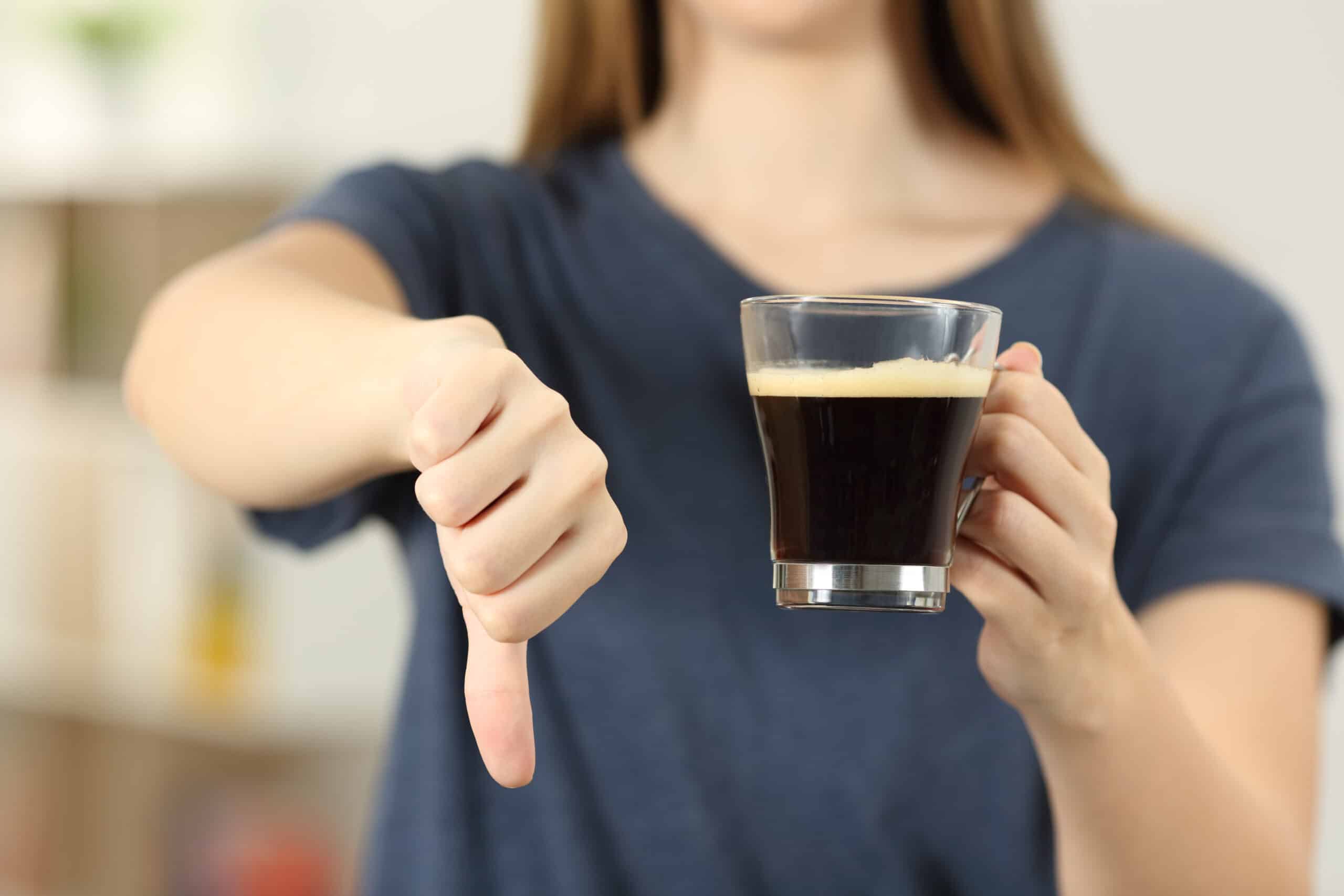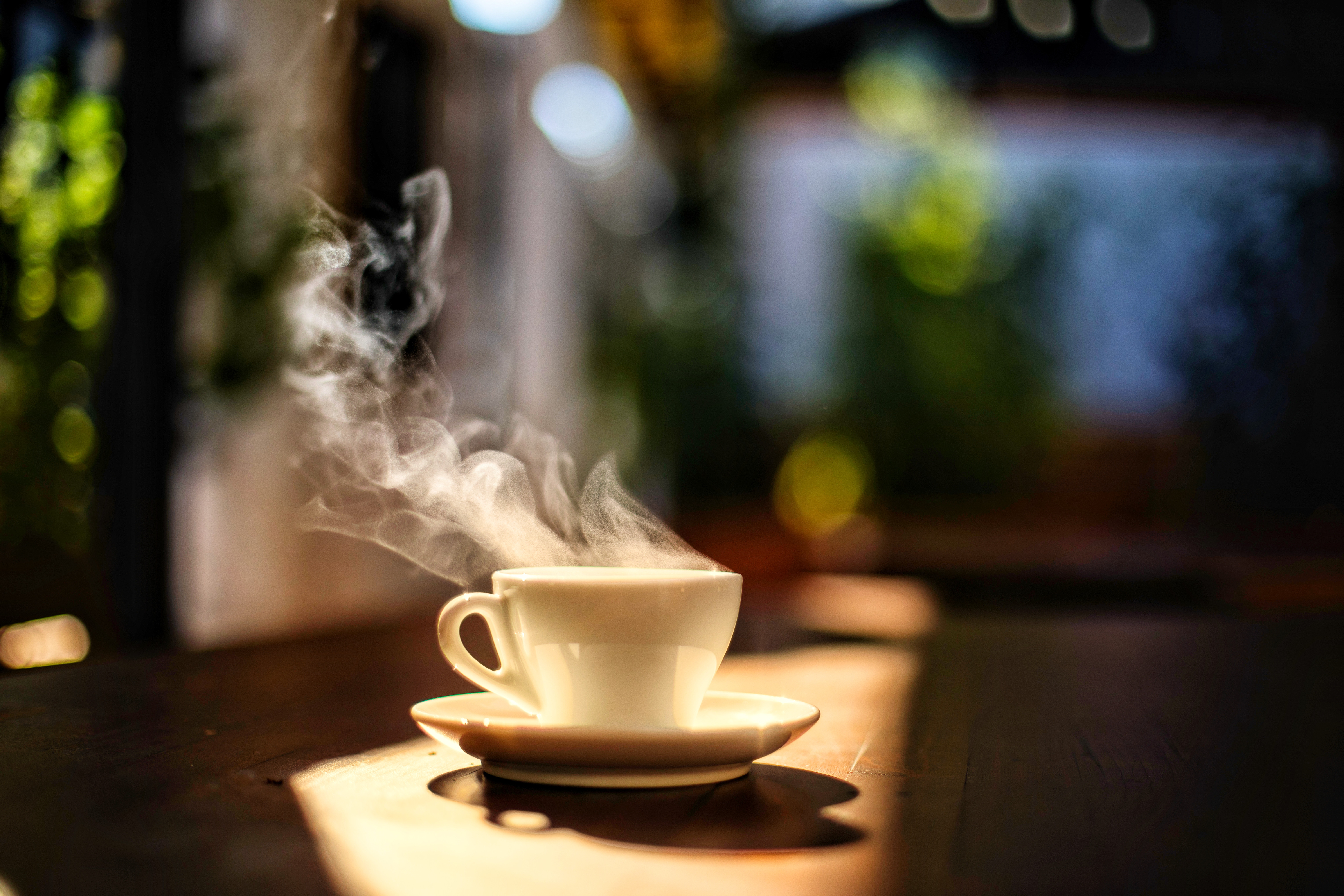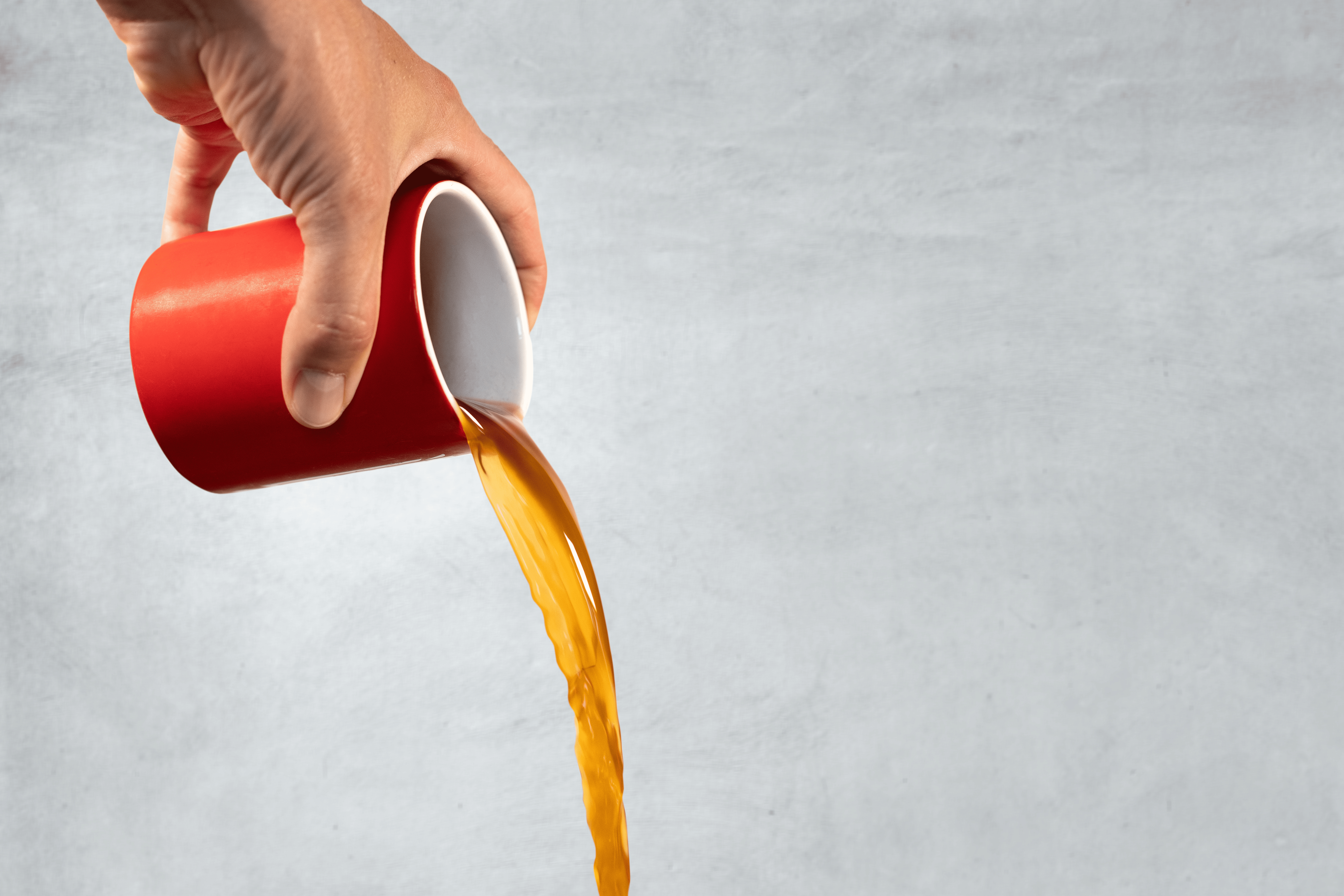You wake up from a hopefully good night of rest, and now you need a hot coffee. You take your first sip and notice an unpleasant taste; metal. Why on earth does your coffee taste metallic? There are a handful of possible reasons for this.
Coffee can have a metallic taste for five reasons:
- Issues with the water you’re using
- Coffee is over-extracted
- The coffee machine has limescale buildup
- Problems with your brewing device
- Poorly roasted coffee beans
Let’s dig a little deeper into each reason to help you understand why you’re not experiencing a nice, smooth cup of coffee.
Issues with the Water You’re Using
Unfortunately, not all water is equal when it comes to purity and taste. You’ve most likely noticed the water coming from your kitchen faucet doesn’t quite taste the same as the pricier bottled water at the store, such as Voss or Fiji water. Tap water has extra minerals such as manganese, calcium, dissolved solids, and contaminants that affect its taste.
According to the Specialty Coffee Association of America, SCAA, the water that goes into coffee should be fresh, clean, and odor-free. It should contain less than 250 mg/liter of total dissolved solids, less than 85 mg/liter of calcium, and have a pH of 7.5 at most.
The amount of chlorine in the water can also produce a metallic taste. Per the SCAA’s standards, the water you pour into your coffeemaker should have zero milligrams per liter of total chlorine. It’s difficult to know how good or bad the water from your kitchen sink is without testing it.
Testing your water’s hardness will help determine the quality of your water. Unless you have had a water softener in your home, it’s likely your water is relatively hard, thus containing a lot of unwanted minerals. Below is a chart showing the ranges of your water.
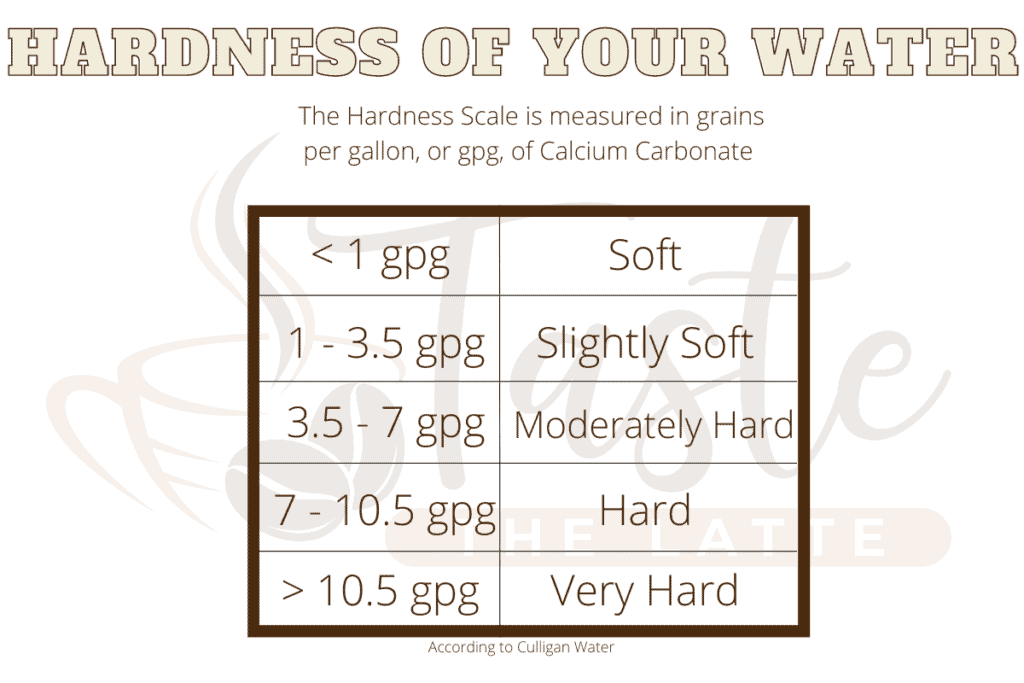
How to Fix Your Water Quality: I highly suggest purchasing a quality water purification system for your drinking water, including what you brew coffee with. I use the APEC Water Systems ROES in my home. I installed it underneath the kitchen sink and use it for all drinking purposes, including coffee.
Another less common issue with your water supply is possible corrosion of the pipes the water is coming from. If your home’s pipes are old and rusted, they could allow unwanted metal ions into your water.
For further details on the type of water you should use when brewing coffee, click here.
Coffee is Over-Extracted
Coffee is often over-extracted, and the results can be a metallic taste or, more commonly, taste burnt or bitter. Extraction is the process of pulling the flavor out of the coffee bean by employing hot water. A chemical reaction occurs when water is combined with coffee grounds, dissolving the flavor compounds. When the beans’ flavor is extracted for too long, your coffee can often taste like metal.
When adjusting the brew time, take care not to under-extract the coffee grounds as well. Under-extraction can leave your coffee tasting salty, sour, or like soap.
Tips to Prevent Over-Extraction
- Never use boiling water. Between 195 degrees and 205 degrees is just right.
- Don’t steep for too long. This is a common mistake when using a French Press.
- Adjust grind size to be a bit more coarse. Below is a table to help with grind size.
- Don’t use too much water. When brewing, using too much water can lead to bitterness because the excess water extracted from the coffee grounds is past the desired point. Read more on “What is the Best Coffee-to-Water Ratio?”
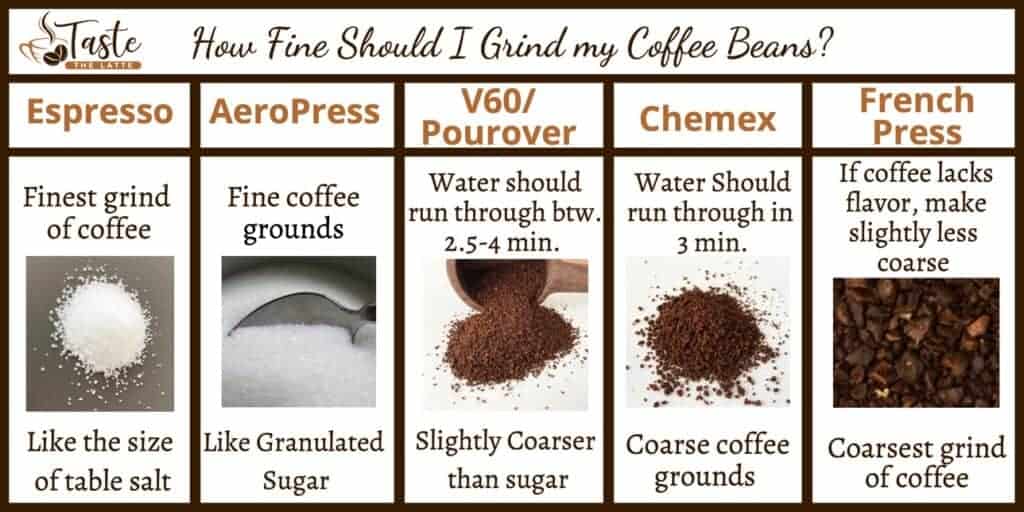
The Coffee Machine has Limescale Build-up
Coffee tasting like metal can also be due to a dirty coffee machine or other brewing device. Ensure your brewing equipment is clean before each use. Ideally, you should do a quick cleaning after each use to keep your machine running in tip-top shape.
When left unclean, old coffee grinds and limescale buildup can produce a metallic taste in your coffee. Besides routinely wiping down your coffee machine, you should use a descaler every two to three months. I use this descaler found on Amazon, which works great at keeping my coffee machine clean and improves the taste of my coffee. White vinegar can also be used as a great alternative to descaler.
Using a water filter can help decrease the amount of scale in your coffee maker.
If a good cleaning and descaling doesn’t fix the issue, your device may have too much long term buildup. In this case, a new coffee maker may be needed.
Check out our other article for more Coffee Pot Mistakes to Stop Making Today!
Issues with Your Brewing Device
Another issue you may be experiencing with your coffee machine is the release of various metals from the device into your coffee. A 2015 study tested eight coffee machines, including portafilter, espresso machine, and capsule machines.
The tests showed that after decalcification there were metals such as Pb, Ni, Mn, Cr, and Zinc were often found in the coffee. The portafilter machines showed the highest levels compared to the other types of devices tested. The study recommended careful rinsing after decalcification to avoid the consumption of these metals.
Poorly Roasted Coffee Beans
Before we discuss how poorly roasted beans can negatively affect the taste of your coffee, I want to point out how low-quality coffee beans can also impact the taste. The most common types of beans sold are Robusta and Arabica.
Robusta coffee beans, especially if they are a lower grade or an overly dark roast, will always produce an inferior taste to Arabica regardless of how it is brewed.
Arabica coffee beans are the most common species of coffee produced and deemed high quality and far superior to coffee made with robusta beans. Arabica beans contain nearly sixty percent more lipids and double the sugar of Robusta beans. Not only does this give the beans a better taste overall, but it causes them to be less bitter.
Now that we’ve gone over how buying 100% Arabica beans are always best, let’s take a look at how they are roasted. There are two primary ways of roasting coffee beans: drum roaster and fluid-bed roaster.
Roasting coffee is both a science and an art; it takes years to learn how to become a Master Roaster. A quality roasted bean is judged on color, aroma, acidity levels, flavor, texture, body, bitterness, and aftertaste. The better the roaster, the better the coffee beans, which leads to a better tasting coffee.
If your beans are poorly roasted, the flavor of your coffee will be affected. Tastes from bitterness, sourness, and even metallic tasting are just some of the adverse effects you can experience when your coffee beans are not roasted properly.
Here at Taste the Latte, all of our beans are air roasted by a master roaster instead of traditional drum roasting. Each bean is suspended in air to ensure a nice, even roast. The chaff of the bean is then vacuumed away from the final product, leaving you with a smooth cup of coffee each and every time.
What Can You Do to Fix Metallic Tasting Coffee
- Use quality, filtered water
- Ensure your coffee isn’t over-extracted
- Clean and descale your coffee machine regularly
- Buy 100% quality Arabica beans
- Purchase from a Master Roaster, like Taste the Latte
Final Thoughts
Hopefully, after reading through this guide to eliminate that metallic taste from your coffee, you can now enjoy a perfect cup of coffee.
What is the Ideal Temperature for Coffee?
When attempting to create the perfect cup of coffee, many factors come into play: coffee beans, grind size, brew method, and coffee-to-water ratio, to name a few. Another detail to…
How To Know If My Coffee Maker Has Mold?
Most people love waking up to the smell and taste of a hot cup of coffee. It not only gives our bodies a wake-up boost from the caffeine but also…
